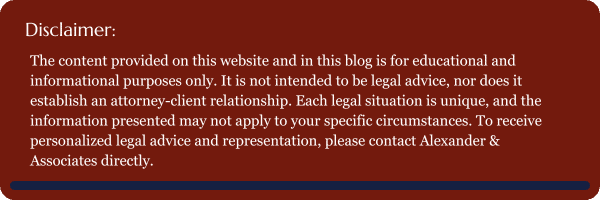Divorce Mediation VS Litigation
In the realm of divorce proceedings, emotions can run high, making it challenging for couples to navigate the legal terrain. When it comes to resolving disputes, two primary options stand out: mediation and litigation. Each method carries its own set of advantages and considerations, and choosing the right approach can significantly impact the outcome of the divorce process.
Defining Mediation and Litigation
Mediation is a form of alternative dispute resolution (ADR) where couples work with a neutral third-party mediator to reach mutually acceptable agreements. Unlike litigation, which involves a court trial and decision-making by a judge, mediation encourages open communication and cooperation between the divorcing parties.
On the other hand, litigation involves presenting the case before a judge who ultimately decides on matters such as asset division, child custody, and spousal support. Litigation follows formal legal procedures, including court filings, hearings, and potentially a trial, and can be a lengthy and costly process.
When to Choose Divorce Mediation
Mediation offers several advantages that make it an appealing option for many couples:
-
Control and Flexibility: In mediation, couples retain control over the decisions made during the divorce process. Rather than having a judge impose rulings, spouses can work together to craft customized solutions that meet their unique needs and priorities. This flexibility can lead to more satisfactory outcomes for both parties.
-
Privacy and Confidentiality: Unlike litigation, which occurs in a public courtroom setting, mediation takes place in a private and confidential environment. This discretion can be especially appealing for couples who wish to keep personal matters out of the public eye and maintain their privacy throughout the divorce proceedings.
-
Cost-Effectiveness: Mediation is often less expensive than litigation since it typically requires fewer formal legal procedures and court appearances. By avoiding lengthy court battles and legal fees, couples can save both time and money, allowing them to move forward with their lives more quickly.
-
Preservation of Relationships: Mediation fosters open communication and collaboration between divorcing spouses, which can help preserve their relationship, particularly if they will continue to co-parent children after the divorce. By working together amicably, couples can minimize conflict and lay the groundwork for healthier post-divorce interactions.
When to Opt for Litigation
While mediation offers numerous benefits, it may not be suitable for every divorce scenario. Litigation may be the preferred option in the following situations:
-
High Conflict: If there is significant animosity or distrust between the spouses, mediation may not be effective in resolving disputes. In such cases, litigation may be necessary to ensure that each party’s rights are protected and that decisions are made impartially by a judge.
-
Complex Legal Issues: Some divorces involve complex legal issues such as substantial assets, business ownership, or disputes over child custody and support. In these cases, litigation may be necessary to thoroughly examine the facts, gather evidence, and present arguments before a judge who can make informed decisions based on the law.
-
Safety Concerns: In situations involving domestic violence or abuse, mediation may not be appropriate due to safety concerns. Litigation can provide a structured legal process through which victims can seek protection orders and other necessary legal remedies to ensure their safety and well-being.
-
Unwillingness to Cooperate: If one or both spouses are unwilling to engage in meaningful negotiation or compromise, mediation may not be productive. In such cases, litigation may be necessary to resolve disputes through legal proceedings and court intervention.
Conclusion
In the realm of divorce resolution, mediation and litigation represent two distinct paths, each with its own set of advantages and considerations. While mediation offers flexibility, cost-effectiveness, and the opportunity for collaborative decision-making, litigation may be necessary in cases of high conflict, complex legal issues, or safety concerns.
Ultimately, the decision to pursue mediation or litigation should be based on the unique circumstances of each divorce case, taking into account factors such as the level of cooperation between spouses, the complexity of legal issues involved, and the need for judicial intervention. By carefully weighing these considerations, couples can choose the most appropriate method for resolving their divorce and moving forward with their lives.
Ready to Navigate Your Divorce with Confidence?
At Alexander & Associates, we understand that every divorce is unique, and we’re here to support you every step of the way. Whether you’re seeking an amicable resolution through mediation or require experienced representation in litigation, our team is equipped with the expertise and compassion to guide you through this challenging time.
With our comprehensive understanding of both mediation and litigation processes, we can help you explore your options and choose the approach that best fits your needs and priorities. From asset division to child custody matters, we’ll work tirelessly to protect your interests and achieve a favorable outcome.
Don’t face the complexities of divorce alone. Contact Alexander & Associates today to schedule a consultation and take the first step toward a brighter future. Let us handle the legal complexities while you focus on building a new chapter in your life.




0 Comments